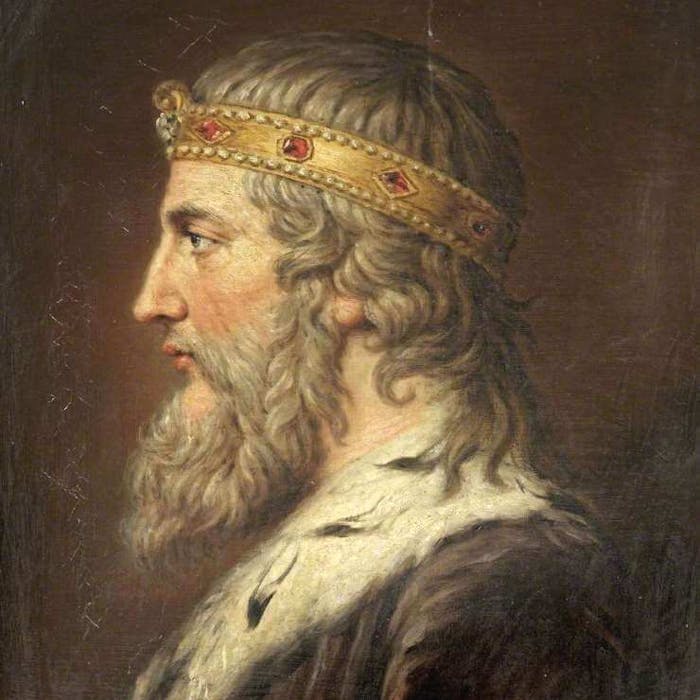
Alfred the Great - vanquisher of the Vikings
Alfred is the only English monarch to be known as 'the great'. He served as King of Wessex, a Saxon kingdom based in the southwest of modern-day England, from 871-899 AD. He ruled successfully, emerging as a military force, with his most important achievement being to prevent an island-wide invasion from the Vikings and to establish a united Anglo-Saxon culture.
Alfred, born at Wantage, Oxfordshire, was the fourth or fifth child in line to the throne, and so it seemed unlikely that he would ever reign. Alfred's father died in 858, and his older brothers took control. Alfred is recorded as fighting alongside his brother, King Aethelred in 868, guarding against what would be a constant threat of attack from the Vikings. In 871, at the Battle of Merton, Alfred and Aethelred suffered a serious defeat by the Danes. When Aethelred died a month later, Alfred became leader of the Saxon kingdom.
An unexpected ambush on Alfred's royal household in Chippenham in 877 resulted in a high death toll, forcing the king and a small band of men into the nearby woods. Here, they built a fort in the Somerset marshland at Athelney - an island in the marshes - which enabled Alfred to rally together a local militia. Men came from nearby towns and villages to form a tight resistance movement, and the conflict had begun to take on a guerrilla style of combat.
From their hidden position in the marshland, Alfred and his men tackled the Vikings for seven weeks. At the same time, Alfred was assembling a formidable army, which went on to defeat the Vikings at the Battle of Edington. This decisive victory for Alfred forced the Vikings to surrender, and secured longer-term peace. A treaty was negotiated by Alfred known as the ‘Danelaw’, which divided England. The Vikings were to take control of the north and east, with Alfred and the Anglo-Saxons taking Kent, West Mercia and their original kingdom of Wessex.
In the following years, Alfred addressed the nation's defense. Building work created a fortified settlement system in southern England, known as burhs. He also established a navy, to address the naval capacity of the Vikings on the English coastline. He further introduced a tax and conscription system, with obligation based on the quality of the land owned. Another important step taken by Alfred was his commitment to unifying kingdoms. He commissioned the Anglo-Saxon Chronicle, a vital document for the time which promoted the unification of England.
Alfred’s reforms and ideas were applied to the education system developed during his reign. He placed much importance on translations from Latin to English in order to establish a wider array of books. He also introduced court schools, a system providing education to those with lesser status.
On 26th October 899 Alfred died from unknown causes. His legacy was significant, as he reformed the traditions and structure of early English society, and maintained peace in uncertain times.
Further reading
Links to external websites are not maintained by Bite Sized Britain. They are provided to give users access to additional information. Bite Sized Britain is not responsible for the content of these external websites.
